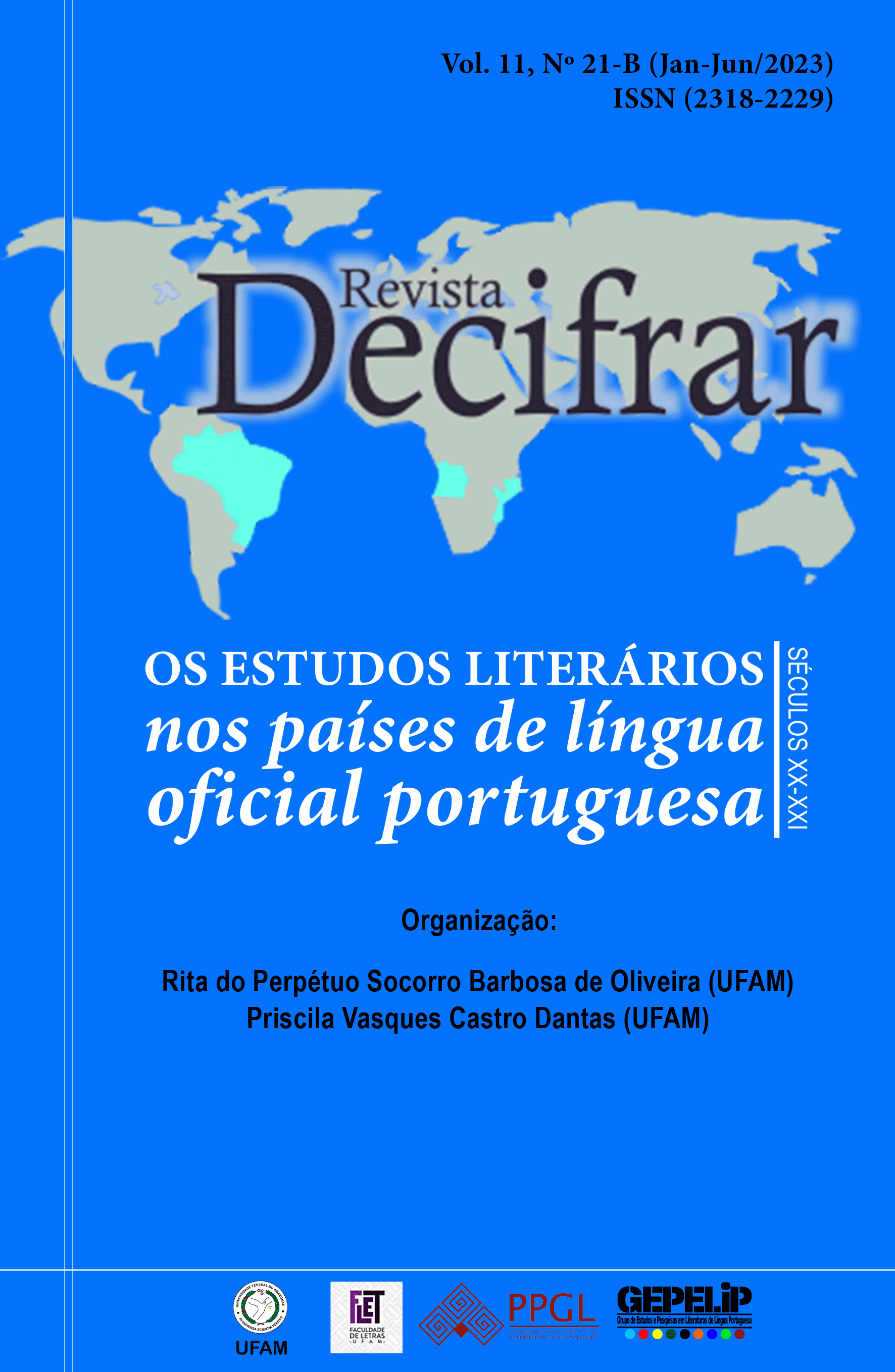A COMÉDIA PALLIATA NA PERSPECTIVA NÃO-ARISTOTÉLICA DE FLORENCE DUPONT: A FUNÇÃO LÚDICA DO PRÓLOGO DE RUDENS E CAPTIVI
Keywords:
Rudens; Captivi; Prólogo; Contexto Ritual; Ludus.Abstract
The palliata comedy (fabula palliata) is the Roman Comedy in which the main actors used the pallium and its authors were based on texts from the Greek New Comedy (Nea). Such plays were presented in scenic games (ludi scaenici), in honor of the gods. This article, which derives from Oliveira's master's thesis (2022), investigates the function of the prologue of the comedies Rudens and Captivi, by Plautus. The playful function of the prologues stands out as it highlights that the Roman New Comedy is a theater that escapes Aristotelian parameters, showing itself as a theater of play (ludus). A brief overview is given of the cultural and religious context in which Roman comedies were inserted, aiming to elucidate that the performance was part of a ritual. Next, a study of the prologues of Rudens and Captivi is carried out, focusing the analyzes on metatheatrical jokes and ironies, perceived through moralizations and sententiae (“sentences” or “maxims”, in English). In addition to Dupont's (2017) non-Aristotelian theatrical perspective, the works of Duckworth (1994) and Moore (1998) on Roman Comedy, as well as Mora (2003) in his reflections on dramatic irony, also help the analysis. This research on the prologues of Rudens and Captivi adds evidence to the thesis defended by Dupont that nothing in Roman comedy refers to Aristotle. Furthermore, sententiae are shown to be a specific technique arising from the game carried out with the dissimulation of morals; these procedures are present in the two comedies studied and allow us to identify the jokes made in the prologue.
Downloads
References
CARDOSO, I. T. Ars plautina. 2005. 367f. Tese (Doutorado em Letras Clássicas) – Faculdade de Filosofia, Ciências e Letras, Universidade de São Paulo, São Paulo, 2005.
CEBULSKI, M. C. Introdução à História do Teatro no Ocidente dos gregos aos nossos dias. Paraná: Editora Unicentro, 2012. Disponível em:http://repositorio.unicentro.br:8080/jspui/handle/123456789/910. Acesso em: 22 jan. 2022.
COSTA, A. Temas clássicos. São Paulo: Cultrix, 1978.
COSTA, L. N. Plauto e o triunfo da tragédia. Letras Clássicas, [s. l.], v. 18, n. 2, p. 88-101, 2014. DOI:10.11606/issn.2358-3150.v18i2p88-101. Disponível em: https://www.revistas.usp.br/letrasclassicas/article/view/122520. Acesso em: 3 jul. 2022.
DUCKWORTH, G. E. The Nature of Roman Comedy: a study in popular entertainment. Oklahoma: University of Oklahoma Press, 1994.
DUPONT, F. Aristóteles ou o vampiro do teatro ocidental. Tradução de Joseane Prezotto et al. Florianópolis: Cultura e Barbárie, 2017.
FARIA, E. Dicionário escolar latino-português. 3. ed. Rio de Janeiro: Ministério da Educação e Cultura, 1962.
FARIA, J. R. (dir.). História do teatro brasileiro. São Paulo: Perspectiva: Edições SESCSP, 2012. v. 1.
GRIMAL, P. A civilização romana. Tradução de Isabel Aubyn. Lisboa: Edições 70, 2009.
MARSHALL, C. W. The stagecraft and performance of roman comedy. New York: Cambridge University Press, 2006.
MÉTRAUX, A. A religião dos Tupinambás e suas relações com a das demais tribus Tupi-Garanis. Prefácio, tradução e notas de Estevão Pinto. São Paulo: Companhia Editora Nacional, 1950. Disponível em: https://bdor.sibi.ufrj.br/bitstream/doc/40/1/267%20PDF%20-%20OCR%20-%20RED.pdf. Acesso em: 22 jan. 2022.
MOORE, T. J. The theater of Plautus: Playing to the audience. Austin: University of Texas Press, 1998.
MORA, C. M. Ironia no Rudens de Plauto. Ágora. Estudos Clássicos em Debate, [s. l.], n. 5, p. 57-71, 2003. DOI: https://doi.org/10.34624/agora.v0i5.11495. Disponível em: https://proa.ua.pt/index.php/agora/article/view/11495/7533. Acesso em: 27 jun. 2022.
OLIVEIRA, R. F. O lugar da moral na comédia plautina: um estudo sobre as sententiae em Rudens. 2022. 129 f. Dissertação (Mestrado em Letras – Estudos da Linguagem) – Faculdade de Letras, Universidade Federal do Amazonas, Manaus, 2022.
PLAUTUS. Amphitruo. Edited by D. M. Christenson. Cambridge: Cambridge University Press, 2000.
Downloads
Published
How to Cite
Issue
Section
License
Copyright (c) 2023 Rodrigo Felipe Ramos Oliveira, Grace dos Anjos Freire Bandeira

This work is licensed under a Creative Commons Attribution 4.0 International License.
Todos os artigos desta revista obedecem a licença Creative Commons - Attribution 4.0 International (CC BY 4.0).










